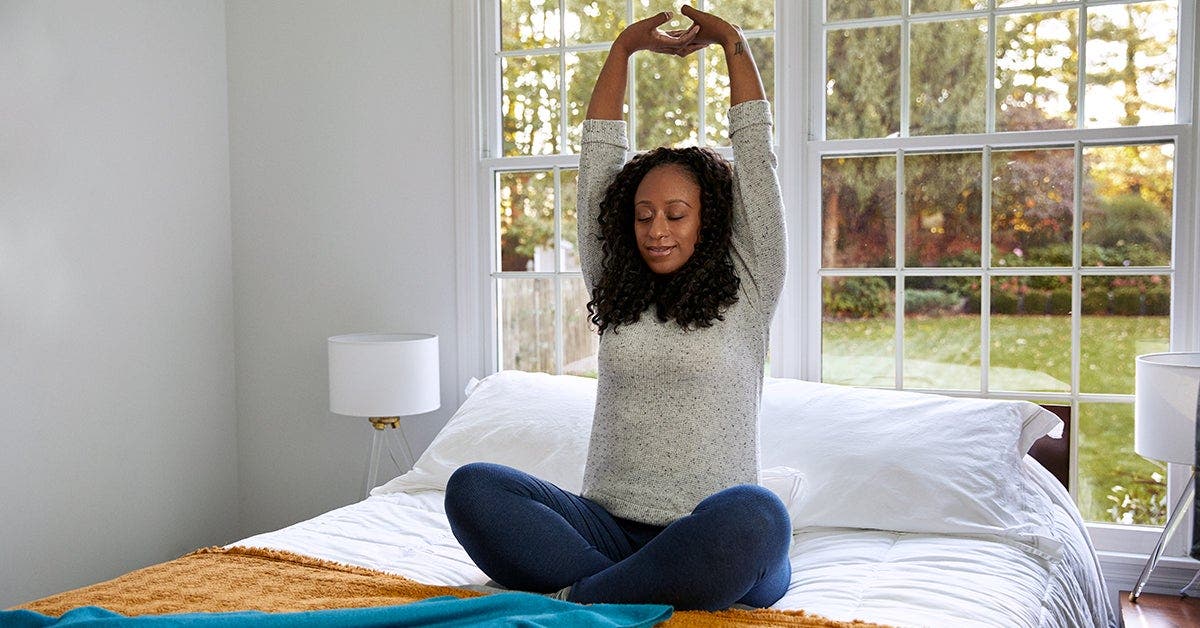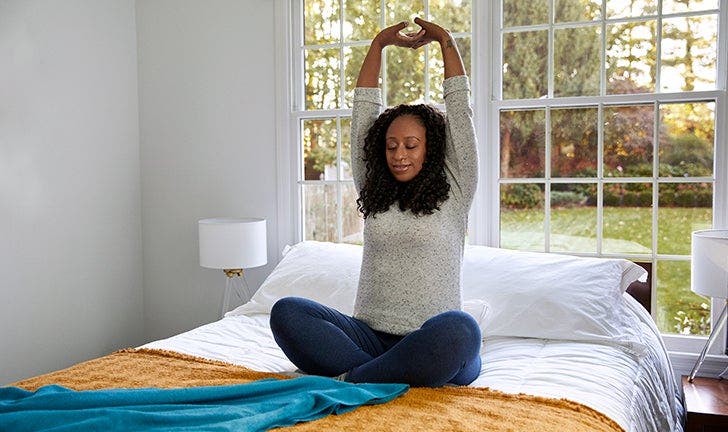How to tap into the power of your mind


“The mind is everything.” That’s how licensed marriage and family therapist Nicole Arzt, who serves on the advisory board for Family Enthusiast, sums it up.
And she’s right. Our minds are incredibly powerful.
“Our thoughts dictate our feelings and behaviours. The mind is the powerhouse behind everything we do,” Arzt says.
“The mind is immensely powerful – so much so, that we’ve only begun to discover the tip of its impact,” adds Katina Mountanos, mindset coach and author of On Adulting: How Millennials (And Any Human, Really) Can Work Less, Live More and Bend the Rules for Good.
“I am actually completing my master’s in clinical psychology with a focus on mind-body connection at Columbia, where we are establishing the scientific backing behind the mind’s power that we humans have intuitively known for centuries,” she adds. “Over the past decade, we’ve just started to scientifically understand how powerful our mind really is – from removing (or creating) disease within our bodies, or simply just allowing us to shift our perspective.”
And we can tap into that power and consciously use our brain to our advantage to reap a wide range of potential benefits, from reducing our stress levels and lessening anxiety to improving cognition and being less distracted, to lowering blood pressure, sleeping better, maintaining our weight and feeling happier.
So how do we do that?
A big part of this is practising mindfulness, which is often done through meditation but can be done at any time while doing anything. Mindfulness is the act of being fully present in a given moment and being aware of the elements of that moment – you can focus on your surroundings, your thoughts, your feelings or your five senses, for example.
“Mindfulness should be as important as hydration, sleep, movement and healthy eating. You are feeding your mind and your soul with present moment awareness. Try it – you will be hooked,” says Sara Hodson, founder and CEO of LIVE WELL Exercise Clinic.
Hodson has four children and runs a large company – she says if she didn’t practise mindfulness, she “would have a hard time balancing it all.”
“I use my time when I am exercising to be truly present – whether that is in a virtual cycle session, my own weight-training program at LIVE WELL, or running through the trails,” Hodson says. “I look at my time with my children as another opportunity to practise mindfulness – listening to their stories, cuddling with them. These are all ‘present’ moments I cherish.”
When it comes to practising mindfulness, Hodson says it’s best to start slowly – especially if you’re a beginner or someone who struggles with this.
“Like we say at LIVE WELL, start LOW and go SLOW,” she says. You don’t have to sit on the floor and meditate with mantras, but if you want to try, Hodson suggests using a mindfulness app to help you focus. Headspace in the WW app has a lot of options to choose from.
“If it doesn’t go well the first time, be gentle with yourself,” says Hodson. She knows first-hand that a lot of us struggle with not getting things right when we’re starting out.
“We all want to be perfect from the start. This is where the word ‘practise’ needs to be emphasized, we need to practise mindfulness to get better at it. In the beginning, you are going to be distracted with a lot of noise, but don’t let that get you down. Practise makes progress, and slowly but surely you will get to a place where you can quiet your thoughts.”
Hodson also suggests trying a simple mindful breathing practice. “Try taking a deep breath for four slow counts, holding the breath for four counts, then exhaling for eight counts.”
Other ways to tap into the power of the mind, according to Arzt, include:
- Start journaling: “Get in the habit of becoming more comfortable with your thoughts. Set a timer for five minutes and just write. Every single day, preferably around the same time,” she suggests.
- Identify the three highlights of your day every night. “Repeated gratitude can enhance your perspective on life. It allows you to appreciate both the big and small things.”
- Commit to technology-free zones or time periods. “Technology can be great, but it can also be incredibly distracting and detrimental to your mental health,” says Arzt. “Set time limits or technology-free places in the house where you put away the gadgets. This isn’t about eliminating them, but it’s about being more mindful of the world around you.”
For Mountanos, an easy way to begin accessing the power of your mind is to simply get curious about your feelings.
“The bar can be really, really low,” she says, “but next time you experience a feeling come up for you (joy, frustration, confusion, tiredness) take a moment to pause and ask why. Where is this feeling coming from? Is it from my environment or something I’m avoiding? What might that feeling be trying to tell me? It doesn’t need to be an overwhelming analysis, but … simply experimenting with your conscious thinking is a low-barrier way to get to know your conscious and unconscious thoughts.”
And if you struggle with stillness or have a racing mind, don’t worry, you’re not alone.
“It’s important to accept that racing thoughts are normal,” says Arzt. “We live in a world where we feel the pressure to be on 24/7. You’re not ‘broken’ or ‘crazy’ for thinking the way you do. But it’s also up to you to take the best steps to take care of yourself.”
Mountanos adds, “Our brains are constantly trying to process information (which is a good thing!). At the core of mindfulness, we are simply attempting to slow our thoughts enough to assess if they are worth holding onto – not completely get rid of them. So, once you level-set your purpose with practising mindfulness, you can begin to practise simply being. Maybe that starts with shifting your morning routine to sit in silence while drinking your morning coffee a couple of times a week. Maybe you begin to experiment with a guided meditation. Whatever you choose to do, as long as you show up with the intention of staying in the present moment rather than checking something off your to-do list, you’re succeeding.”
